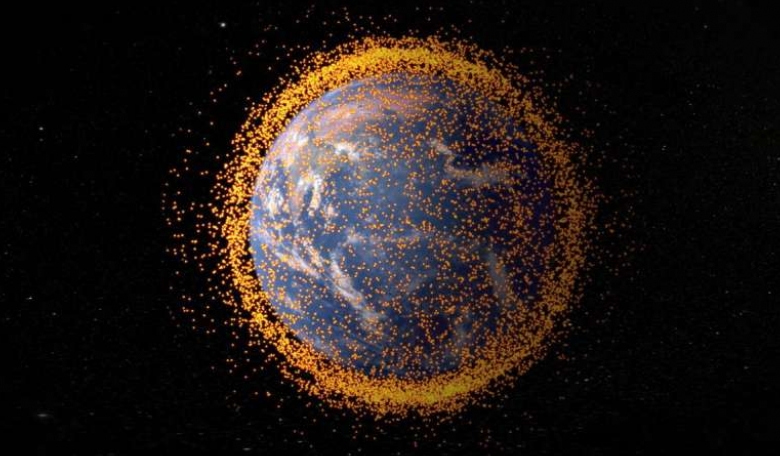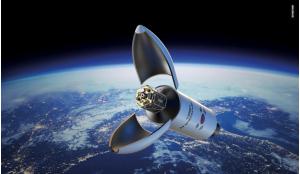A new study, conducted by
researchers from the Information and Navigation College at China's
Air Force Engineering University, with the help of the Institute of
China Electronic Equipment System Engineering Company, suggests that
lasers could be used to help the ever-growing space debris problem.
Ever since man's first exploits in space, space debris has been
accumulating in low Earth orbit and currently poses a major threat to
both active satellites and the International Space Station.
The
study, called "Impacts of orbital elements of space-based laser
station on small scale space debris removal," was conducted by
researchers from the Information and Navigation College at China's
Air Force Engineering University, with the help of the Institute of
China Electronic Equipment System Engineering Company and led by Quan
Wen. The study used numerical simulations to see if an orbital
station with a high-powered pulsed laser could make a dent in orbital
debris and concluded that an orbiting laser with the same right
ascension of ascending node (RAAN) as the debris itself would be
effective at removing it.
According to Wen's study, "The simulation results show that, debris removal is affected by inclination and RAAN, and laser station with the same inclination and RAAN as debris has the highest removal efficiency. It provides necessary theoretical basis for the deployment of space-based laser station and the further application of space debris removal by using space-based laser."
China has not had a great
track record with space debris. In 2007, a Chinese anti-satellite
missile test resulted in the creation of over 3000 bits of space
debris, which eventually caused severe damage to a Russian satellite.
Most of this debris cloud will be in orbit for decades, continuing to
pose a threat. As China's presence in space continues to grow, so do
the country's efforts to deal with the growing debris issue.











